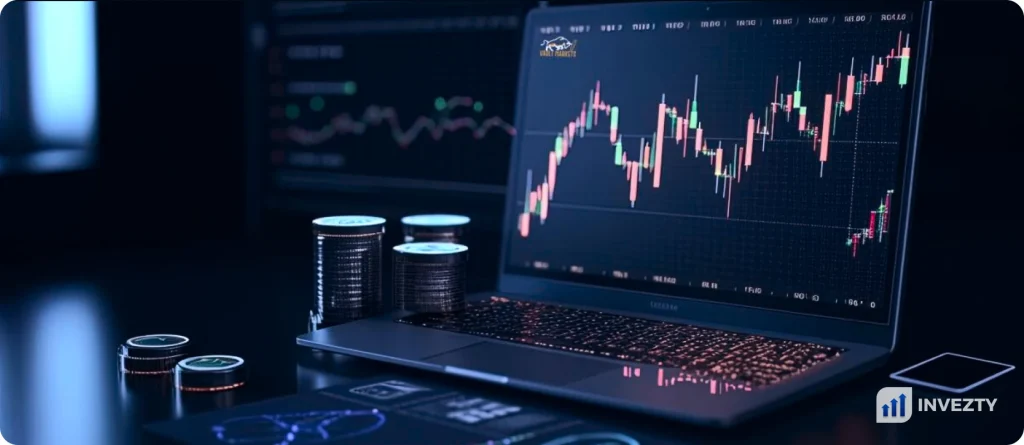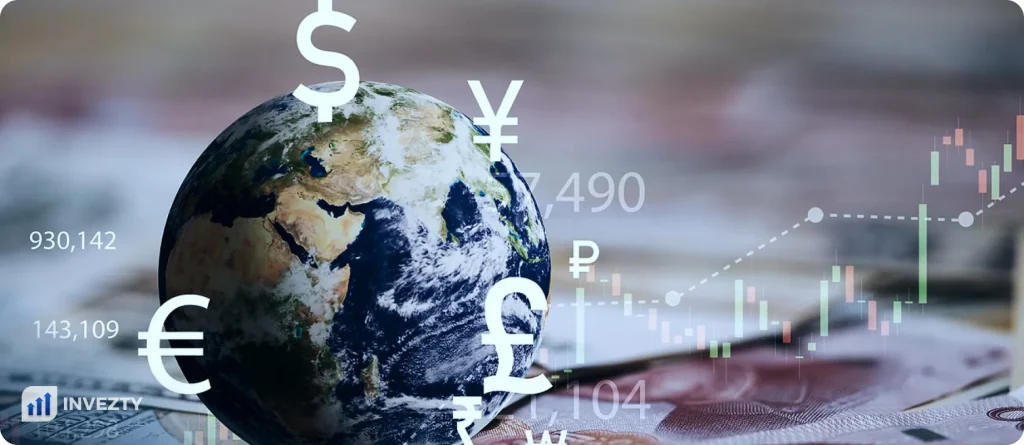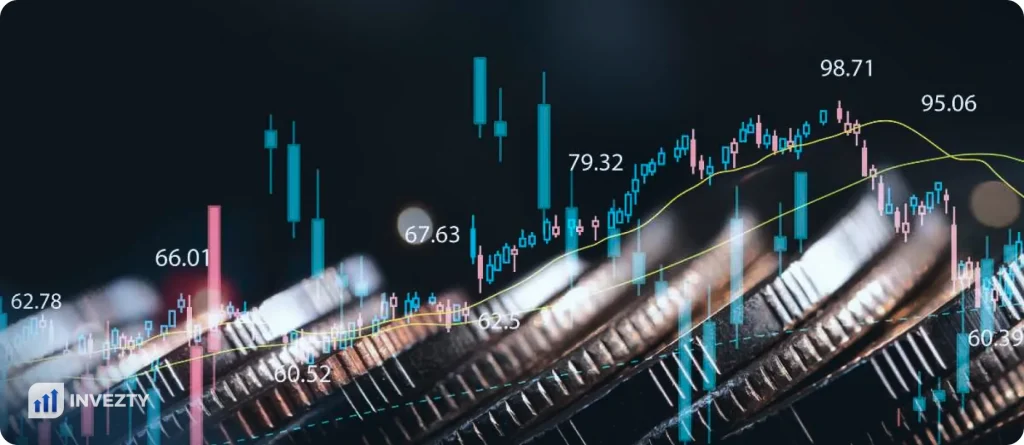Claire Maumo wears multiple hats. She is a leading crypto and blockchain analyst, a market dynamics expert, and a seasoned financial planner. Her blend provides a unique combination that she leverages to offer expert analysis of economic and market dynamics. Her pieces deliver a holistic approach to the game, building your confidence and securing your financial future. Follow her for a comprehensive approach to mastering your trading journey.
We may receive compensation from our partners for placement of their products or services, which helps to maintain our site. We may also receive compensation if you click on certain links posted on our site. While compensation arrangements may affect the order, position or placement of product information, it doesn’t influence our assessment of those products.
Forex is the world’s biggest and most liquid market, making it an attractive hub for traders. It involves the buying and selling currencies to profit from fluctuations in exchange rates. With a daily trading volume exceeding $7.5 trillion, the forex market provides immense opportunities for all types of traders.
Thanks to technology, traders can now venture into forex via online brokerage firms. However, understand that while the currency market can bring good profits, losses are inevitable. Understanding the risks that come with forex trading is crucial, and that’s why we are here to provide you with proper guidance.
What is Forex Trading?

Forex, currency, or foreign exchange trading involves exchanging one currency for another. The activity is conducted at agreed-upon prices on the over-the-counter (OTC) market. An OTC market is a global online marketplace where currencies are traded against each other in pairs. These include EUR/USD, GBP/JPY, GBP/USD, and more. Traders engage in forex trading with the aim of profiting from changes in currency values.
Currencies are traded in pairs, meaning that when you buy one currency, you are simultaneously selling another. For example, in the EUR/USD pair, you buy euros and sell US dollars. The forex market operates or is open 24 hours a day, five days a week, with major trading sessions in London, New York, Tokyo, and Sydney.
What are Currency Pairs?

In foreign exchange trading, currencies are traded in pairs. Each forex/currency pair has a base and a quote currency. The forex base currency is the first currency listed in the pair, while the quote currency is the second. The price of a currency pair represents how much of the quote currency is needed to purchase one unit of the base currency.
For example, in the EUR/USD pair, EUR is the base currency, and USD is the quote currency.
Currency pairs are divided into three categories, including:
- Major Pairs – These are the most traded pairs on online brokerage firms. They include EUR/USD, GBP/USD, USD/JPY, and USD/CHF.
- Minor Pairs – These pairs are listed without the USD included, but involve other major currencies. Examples are EUR/GBP, EUR/AUD, and GBP/JPY.
- Exotic Pairs – These involve a major currency paired with a currency from an emerging or smaller economy. Popular examples include USD/TRY (US Dollar/Turkish Lira) and EUR/HKD (Euro/Hong Kong Dollar).
How does Forex Trading Work?

Besides understanding “what is forex trading,” many traders want to know how it works. Well, as mentioned above, the activity allows traders to buy currencies while selling others. The main goal is to profit from the exchange, as it is based on exchange rates. The forex market price will tell you how much one currency is required to purchase another. For instance, in the EUR/USD currency pair, with the exchange rate being 1.20. In this case, it means that 1 EUR can be exchanged for 1.20 USD.
Note that this market is liquid and volatile at the same time, meaning there is no guarantee for profit. Therefore, consider analyzing the market and staying abreast with economic factors and events. This way, you will easily understand the movement of currencies and make the best prediction that may bring about good profits.
Simply put, take advantage of brokers’ technical and fundamental analysis resources. They will help in analyzing the market and developing solid forex trading strategies. Plus, consider trading with a credible forex broker that features your required elements.
In forex, you can either go long or short. Going long means a trader buys a currency, hoping that its value will increase in the future to sell at a profit. In contrast, going short means you sell a currency expecting its value to decrease even more so you can rebuy it.
Your broker will charge you spreads when trading forex. A spread is the difference between the bid price (the value at which you can sell) and the ask price (the value at which you can buy). A lower spread indicates a more liquid market.
You will also have an opportunity to apply leverage. This allows you to control a large position with a small amount of capital. For example, a leverage ratio of 100:1 means that a trader can control $100,000 of currency with only $1,000. It is crucial to understand that leverage or margin trading can amplify profits. However, the activity also increases the potential for massive losses.
How to Trade Forex: Step-by-step Guide
Trading forex and maximizing your potential in the activity requires a strategic approach. If you are a beginner trying to understand how to trade forex, we provide proper guidance on getting started below.
Start by familiarizing yourself with forex trading and how the market works. Take advantage of brokers’ and other online platforms’ learning resources to educate yourself about currency trading. The resources come in the form of articles, guides, eBooks, webinars, podcasts, YouTube channels, and more.
Once you are familiar with the currency market and understand your trading needs, identify the best forex broker. The broker must align with your forex trading requirements and be highly regulated by top-tier authorities such as South Africa’s Financial Sector Conduct Authority (FSCA), UK’s Financial Conduct Authority (FCA), and more. This guarantees an exciting trading experience and a secure environment.
With your chosen broker, click the register or sign up button to create a forex trading account. From our experience, this procedure is straightforward, especially with regulated brokers. You will need to share your personal details, such as name, email, source of income, location, and more. Some brokers will also engage you in identity verification to ensure the online trading environment remains secure.
After your forex trading account is activated, fund it per your broker’s minimum deposit requirement. You should also transact using a convenient method to avoid wasting time and encountering the hassles of currency conversions.
Your broker will confirm your deposit and redirect you to its listed currencies to trade. Start by developing a trading plan based on your risk tolerance and goals. You must also be armed with a solid trading plan and apply risk management controls like stop-loss and take-profit orders. Most importantly, start with a small capital and gradually increase it as you become comfortable trading.
Before opening a position on the live trading account, start with a demo account. Demo accounts are risk-free and funded with virtual money to ensure you test a broker’s performance and gauge your skill level without spending your hard-earned money.
Forex Trading Risks
The forex market has great potential, thus attracting global traders and investors. However, it also carries risks that, if overlooked, may result in losses. The market can be volatile and adjust quickly based on new information and news. Prices can constantly fluctuate during the day, thus adding the risk of experiencing slippage and getting stopped out of positions.
Another risk in the currency market is leverage trading. Also known as margin trading, it allows traders to open larger forex positions with a small capital. This can bring about good profits if you apply excellent strategies. However, since you will be trading with a broker’s borrowed funds, you may also end up with massive losses if you are not keen.
We advise you not to apply leverage if you are not confident in your strategy and decisions. These include your trade selection, position management, and trade size. Remember, the most active currency pairs tend to have fewer moves due to increased liquidity.
FAQs
Trading forex comes with great potential and risks, so there is no guarantee for profits. To increase your chances of making money, educate yourself accordingly on how the market works. You should also have a plan regarding budgeting, strategy development, and trade size. Most importantly, track your open position to ensure everything works out as planned.
Forex is known to be the biggest and most liquid market in the financial space, thus presenting excellent opportunities for traders. The market is also open 24/5, making it flexible and allowing traders to open and manage positions anytime during weekdays. Most importantly, forex comes with margin trading. By applying leverage in your activity, you get to control larger positions with smaller capital.
Absolutely. You can trade forex with $100. You simply need to find a broker with a low minimum deposit requirement and offers nano or micro accounts. These accounts allow users to open smaller trades while enjoying quality trading tools.
The best time to consider trading forex is during market overlaps, such as when the London and New York sessions overlap (2:30 pm – 4:30 pm GMT). This period typically increases trading volume and volatility, offering more trading opportunities.
Conclusion
Understanding how to trade forex for beginners can be challenging, but you can easily get started with proper guidance. Start by learning the ropes and continue staying abreast of the economic news and events that may affect currency prices. Plus, maintain discipline in your activity by sticking to your plan and not basing your decisions on emotions.
If you incur a loss, take a break and understand the factors behind it. If possible, find a trading journal to note down your strategies and avoid repeating the same mistakes. By sticking to your guidelines, you will start reaping the benefits as you become more independent and successful.
